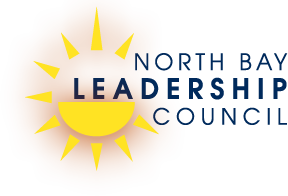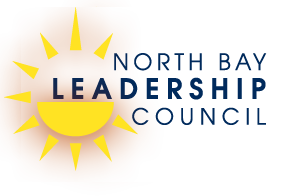Sonoma State University Redesigns its Professional MBA Program to Adapt to Young Workers
Higher purpose, not higher profits, are driving Generation Z. Now a local university is taking that message and modifying its MBA program.
Gen Zers, comprised of those born in or since 1997, are concerned about issues like social justice, structural racism, inclusivity, climate change and more, according to Dr. Jean-Francois Coget, dean of the School of Business and Economics at Sonoma State University.
“They do not want to just make money and work away. They want meaning. They want to make a difference in the world,” Coget said. “A business school with a purpose-driven business focus should be attractive to them.”
To meet the goal that would create students who see the bottom line as less important than honoring their values and beliefs, SSU’s School of Business and Economics is changing its curriculum. Hoping to drive enrollment, its traditional MBA program, formerly known as the Professional MBA, has been redesigned as a Purpose-Driven MBA.
“Purpose-driven business practices go beyond merely maximizing profits to having a positive impact on society and the environment,” Coget said. “The themes of sustainability, community engagement, corporate social responsibility and DEI (diversity, equity and inclusion) are particularly salient.”
The redesign adds five courses to the traditional MBA curriculum that are in the process of being rolled out: Sustainable Business Management is available now; Leadership and Innovation will launch in the fall; Social Entrepreneurship in Theory and Practice is scheduled for summer 2023, possibly earlier; Sustainable Operations Management will start in summer 2023; and Introduction to Purpose-Driven Business is still in the works, according to Coget.
“Next, we will review the undergraduate curriculum to infuse it with purpose-driven business courses,” he said.
The School of Business and Economics has formed a task force comprised of faculty, staff and external stakeholders to help lead the path forward as its curriculum continues to evolve, Coget said.
Companies driven by purpose
Among the area companies identified by the dean as being purpose-driven is Petaluma-based Amy’s Kitchen.
“We have quite a few Sonoma State alumni who work for our business and, as such, we’ve also been invited to speak at some of the sustainability-oriented courses over the years,” said Paul Schiefer, senior director of sustainability and social impact for the natural foods producer.
Coget reached out about a year ago to ask if Amy’s would like to be part of the task force, Schiefer said.
“We just thought it was such a wonderful way to use the case study of Amy’s to start weaving in these ideas of sustainability and social responsibility into traditional MBA programs,” Schiefer said, “and really help our future business leaders understand how their work can support multiple bottom lines, not just strictly a financial bottom line.”
Schiefer, who has been with the company for 15 years, said Amy’s is a primary example of a business whose founders, Andy and Rachel Berliner, decided to manufacture only organic products. It wasn’t a decision based on profits, Schiefer said, but rather the result of farming practices that Andy Berliner learned can contribute to cancer.
“So he chose to use organic agriculture, but at the time, there was no standard or market awareness. Not one customer said, ‘Well, thank you for being organic,’” Schiefer said. “Now, 35 years later, it’s a $60 billion industry. We didn’t make that decision because we thought there was a $60 billion industry in the future. We made the decision because it was absolutely the right thing to do, and it just happened to be that doing the right thing paid off in the long run.”
Bob McGee, president and chief operating officer at Petaluma-based Straus Family Creamery, also a Coget nominee for supporting purpose over profits, said organic farming and climate leadership has been the mission of founder and CEO Albert Straus since taking over the family farm in 1994.
That work also involves advocacy and education, McGee noted.
“Our involvement with SSU actually stretches over a couple years,” McGee said.
Most recently, Straus Family Creamery participated in an undergraduate course on social entrepreneurship. The course includes lessons about social responsibility, financial principles of sustainability and nonprofit organizations, among other topics, according to SSU’s course description.
“We hosted three of the students on a tour of our new manufacturing facility, out of which they wrote a paper about Straus Family Creamery,” McGee said. “And we plan to participate with that class again in the fall of 2022.
“In addition, we’ll be participating in a lecture series with the Executive MBA Program, and we have had conversations and engagement with the Center for Environmental Inquiry on the campus,” he said.
On the topic Gen Z’s concerns, McGee has his own perspective.
“My experience is within any generational group, you will find people who are very interested in all of the attributes that Dr. Coget talked about with Gen Z,” McGee said. “The senior and mid-level management at Straus Family Creamery consists of baby boomers, Gen Xers and millennials. And all of us are at Straus Family Creamery because we believe in Albert’s vision and Albert’s mission, and we want to feel like our work makes a difference.”
Kristel Corson, chief revenue officer at Clover Sonoma, said the Petaluma-based company supports SSU’s School of Business and Economics’ move toward focusing its MBA executive program on purpose-driven businesses.
“The future of business is one of purpose, and our company was founded on this notion three generations ago,” Corson said in an email statement. “As a certified B Corp, we have a responsibility to use our business as a power for good. We’ve baked conscious business practices into our DNA and continue to look for ways to foster meaningful growth, and lead by example — empowering future generations to follow suit.”
Clover Sonoma also is a member of a One Step Closer’s J.E.D.I. Collaborative, an industry group whose purpose is “to accelerate and expand the impact the natural products industry can have in transforming our entire food system and the accessibility of healthy products,” according to its website.
Corson noted the group’s focus “on infusing justice, equity, diversity and inclusion into our culture, community and with consumers” resonates with Clover Sonoma.
“This speaks specifically to Gen Z, but also addresses the larger social issues impacting all businesses and communities,” she said.

